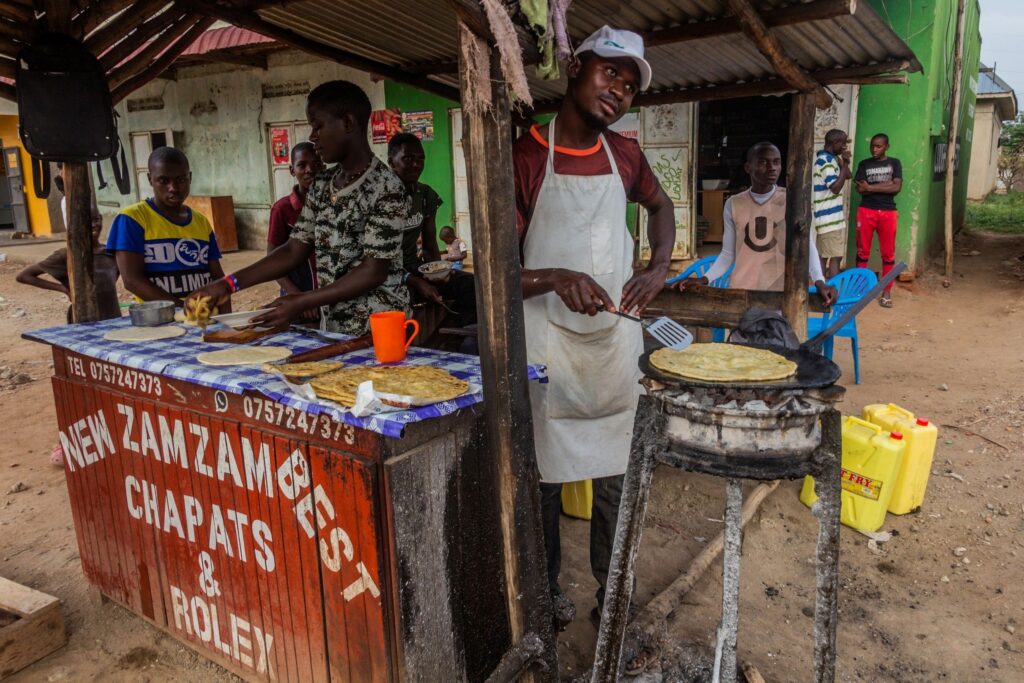Often referred to as the “Pearl of Africa,” Uganda is a nation rich in culture and natural beauty. From its vivacious ethnic communities to its mouth-watering cuisine, Ugandan lifestyle is fascinating. Whether you are visiting for the first time or looking to understand the essence of daily life in Uganda, this guide offers a deeper look at the people, homes, food, and cultural practices that define this East African nation.
Diverse Ethnic Groups and Cultural Heritage
Uganda is home to over 50 ethnic groups, each with unique customs, languages, and traditions. The largest ethnic communities include the Baganda, Banyankole, Basoga, Bakiga, and Acholi, among others. Luganda, spoken primarily by the Baganda, is widely used across the country, although English and Swahili are the official languages.
Traditional music and dance play a vital role in Ugandan culture. Each ethnic group has its own unique rhythms, with instruments like the adungu (a stringed instrument), the engalabi (a long drum), and the xylophone being commonly used. Cultural ceremonies such as the Buganda Kingdom’s Kabaka’s Birthday Run and the Imbalu circumcision ritual of the Bagisu are integral parts of the country’s rich heritage.
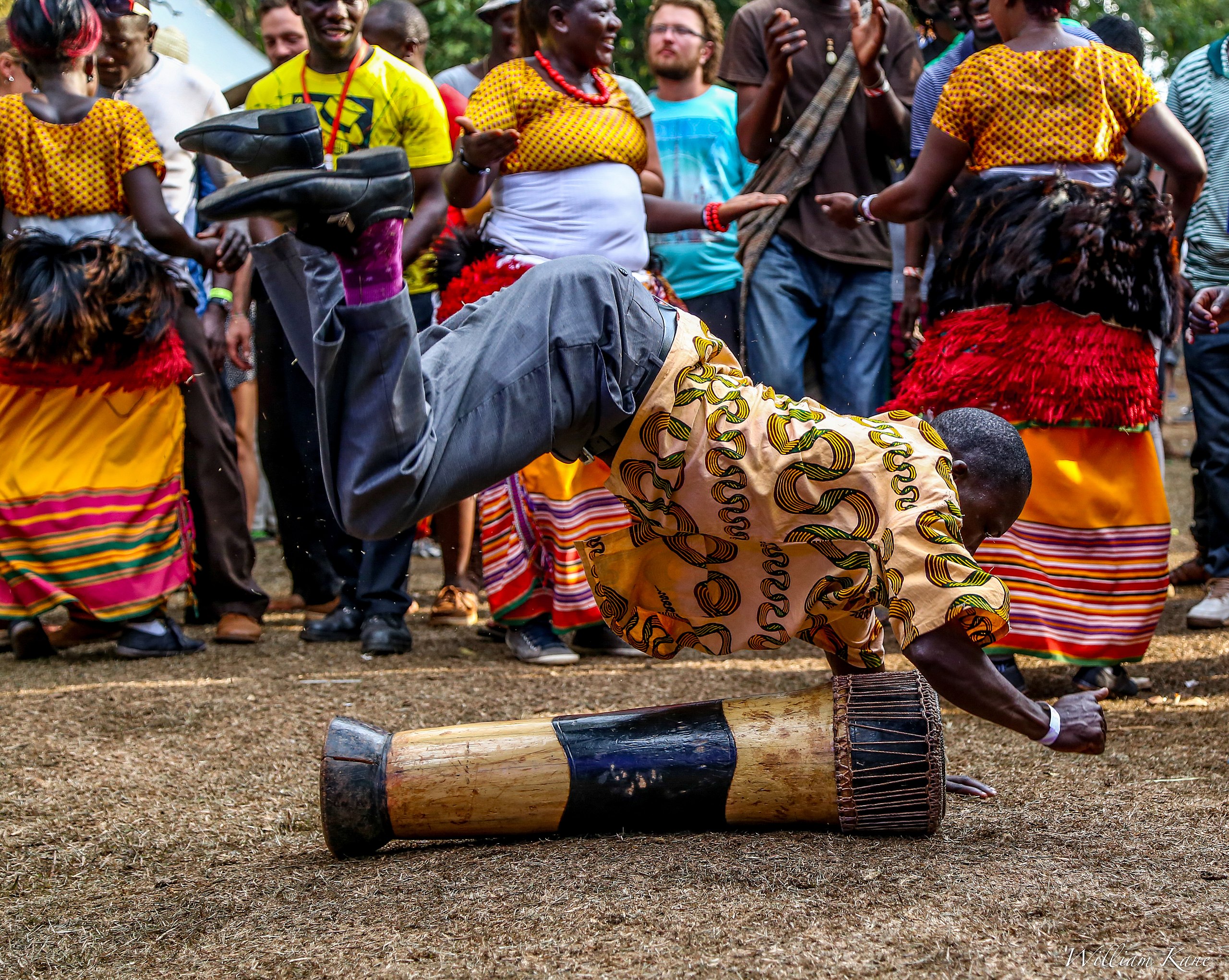
Traditional and Modern Homes
Ugandan homes vary significantly based on location and economic status. In rural areas, traditional houses are often made of mud and wattle with thatched or iron sheet roofs. These homes are typically surrounded by banana plantations, gardens, or livestock enclosures.
In urban centres like Kampala, Entebbe, and Jinja, modern apartment complexes and standalone houses dominate. Many homes in the city reflect contemporary architectural styles with concrete, glass, and steel structures, equipped with modern amenities such as internet connectivity.
Family remains at the heart of Ugandan households. Extended families often live close together, and it is common to find multi-generational homes where grandparents, parents, and children share responsibilities and space.
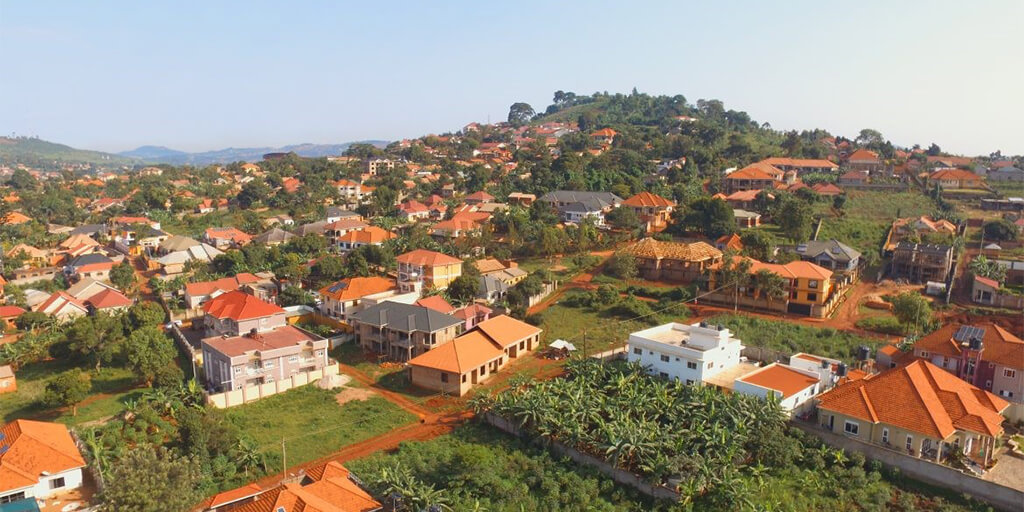
A Taste of Ugandan Cuisine
Food is a central aspect of Ugandan life, bringing families and communities together. Ugandan cuisine is known for its rich flavours and use of local ingredients such as bananas, maize, beans, and groundnuts.
Some popular dishes include:
- Matoke – A staple dish made from steamed and mashed green bananas, often served with peanut sauce or meat stew.
- Luwombo – A traditional dish where chicken, beef, or groundnuts are slow-cooked in banana leaves for a rich, earthy flavour.
- Posho and Beans – A simple yet filling meal made from maize flour porridge (posho) served with a bean stew.
- Rolex – A popular street food consisting of an omelette rolled in a chapati, commonly eaten for breakfast or as a quick snack.
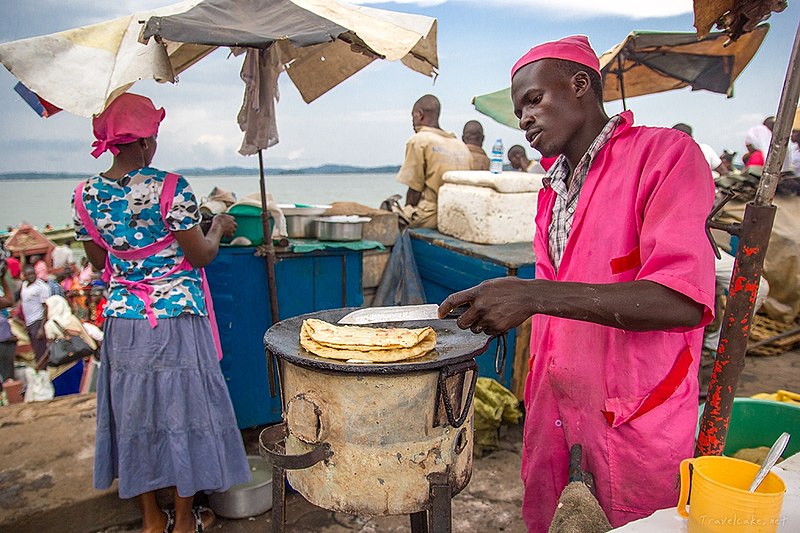
- Malewa – A delicacy made from smoked bamboo shoots, traditionally enjoyed in the eastern regions of Uganda.
Food is often enjoyed communally, with families and friends gathering around to share meals, especially during festivities and celebrations.
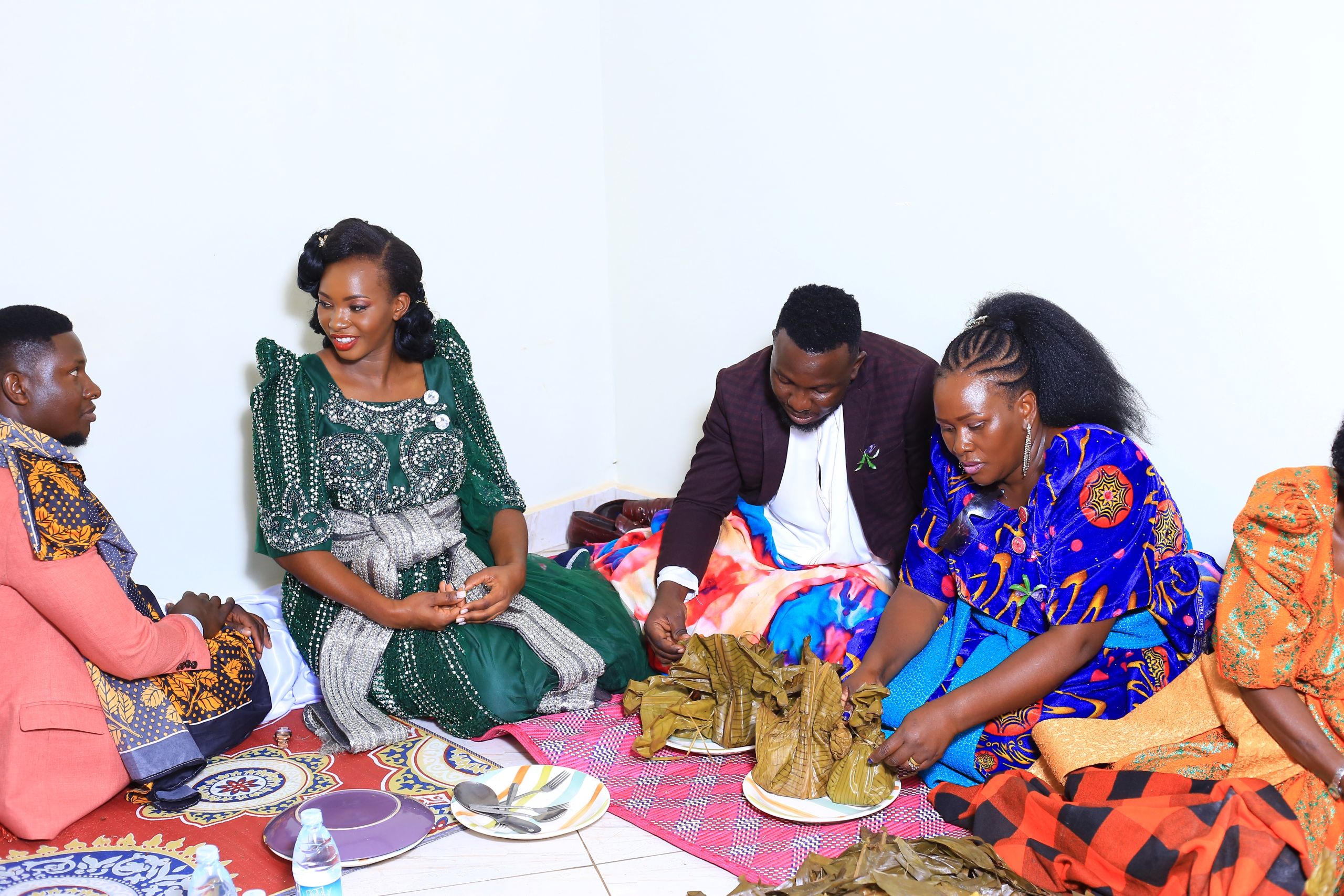
Daily Lifestyle and Social Habits
Ugandans are known for their warmth and hospitality. Greetings are an essential part of daily interactions, and handshakes, combined with respectful inquiries about one’s well-being, are common. In many cultures, younger individuals kneel when greeting elders as a sign of respect.
Markets and roadside stalls play a significant role in daily life, offering fresh produce, clothing, and household essentials. Kampala’s bustling Owino Market and Nakasero Market are particularly famous for their wide variety of goods.
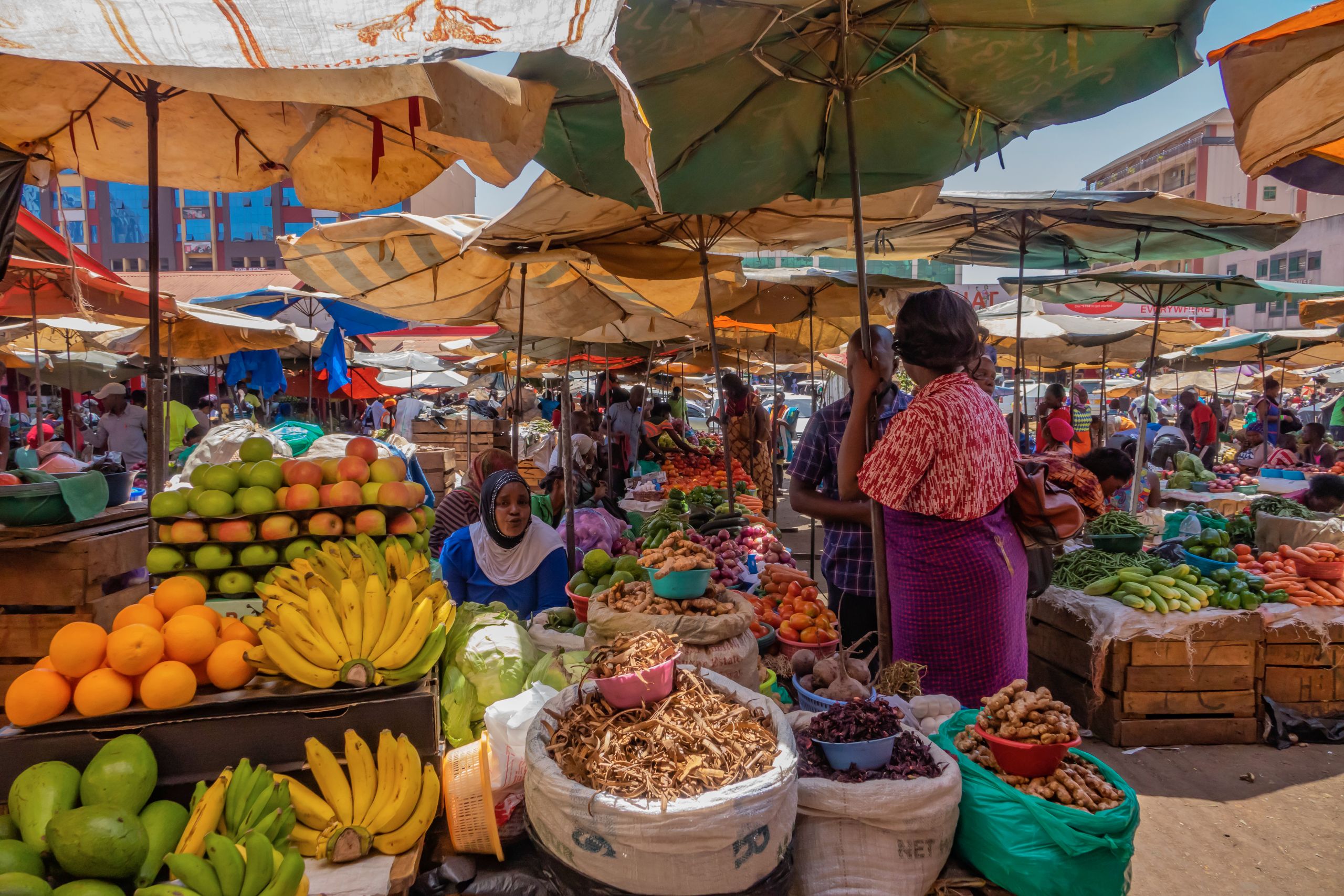
In terms of leisure, Ugandans enjoy a mix of traditional and modern entertainment. Music, dance, and sports are popular, with football (soccer) being the most beloved sport. The Ugandan Premier League and international football matches draw large crowds, and many Ugandans passionately support European football clubs.
Social gatherings often take place in bars, restaurants, and entertainment hubs where people enjoy live music, cultural performances, and local brews such as malwa (fermented millet drink) and waragi (a traditional gin).
Ugandan lifestyle is a blend of deep-rooted traditions and evolving modern influences. Whether it’s the warmth of community life, the variety of local cuisines, or the dynamic urban culture, Uganda offers an enriching and colourful way of life. With its friendly people, rich history, and stunning landscapes, it is no wonder that Uganda remains a unique and captivating destination in East Africa

